共计1241条影片

娘子军传奇
HD
符红女在《红色娘子军》芭蕾舞剧中饰演一名小女兵, 由于资历尚浅, 演出时总在舞台的一角作陪衬,难以有展示自我的机会。一次意外发生,她从舞台上跌落至台下,昏迷了过去。醒来时, 发现情况变得很糟……符红女数次昏迷, 她像是在梦境中走进了红色娘子军李香瑜的生命里, 进行了一次神交。李香瑜及其战友传奇且不平凡的经历,融汇在符红女一个多小时的记忆里, 短暂且悠长……

白色严冬
HD
《战友》是一部反战题材影片。在严寒的挪威荒野的上空,英德双方的战机在一场激烈的空战中被彼此击落坠毁。在这与世隔绝的地方,他们必须竭尽全力在严寒的冬季生存下来。尽管战争使他们成了敌人,但是随着日子一天天过去,这种敌对状态很难维持。在对彼此的需要中,一种非常规的友谊开始萌芽。最后他们竟成了亲密的战友。无论如何,战争都是荒谬的。

安德烈·卢布廖夫
HD
15世纪初,俄罗斯动荡时期。著名圣像画家安德烈·卢布廖夫(安纳托里·索洛尼岑 Anatoli Solonitsyn饰)在大公的邀请下前往莫斯科为教堂作画,受到了贵族式的服务与对待。然而,卢布廖夫却身处在一个饱受鞑靼人铁蹄践踏和充满灾难残杀的悲惨时代。目睹了黎民百姓在大公暴政下的水深火热,卢布廖夫毅然离开教堂返回修道院。不久,卢布廖夫被迫再度回到莫斯科进行圣像创作。然而面对居民被无辜的残杀,教堂在战火中被无情的摧毁,卢布廖夫再次陷入艺术与现实巨大反差的质疑之中,拒绝继续作画。1423年,鞑靼人的军队终于被赶出俄罗斯的大地。在经历了炮火、鲜血的锤炼洗礼后的卢布廖夫,终于完成了传世名作《三位一体》的创作。
由苏联电影大师安德烈·塔科夫斯基执导的旷世史诗巨作《安德烈·卢布廖夫》,用塔式特有的诗化电影语言和如历史壁画一般的浓重画笔,呈现了15世纪俄罗斯著名圣像画家安德烈·卢布廖夫漂泊与抉择的一生。本片荣获1969年第22届戛纳电影节费比西奖。

血战湘江
HD
作为一部为长征胜利八十周年献礼的影片,本片以长征史上最惨烈的湘江之战为背景,成功塑造了以毛泽东为代表的中国工农红军领导人在长征中不屈不挠的光辉形象,深刻揭示了左倾错误路线给红军带来的惨痛损失,生动表现了红军34师官兵前赴后继、勇于牺牲,全力掩护中央红军渡过湘江,为苏维埃流尽最后一滴血的大无畏精神。

遥远的旅程
HD
二战结束后拍摄,但拍成之后被禁10年,终于在近年得以重见天日。捷克影史上 最重要的反映大屠杀的反战电影之一,导演阿尔佛雷德·雷铎(Alfred Radok)生长于战 争年代,他深受战争之苦,家庭因战争而破散,他自己也蹲过集中营。在二战结束之后拍 摄了这部反映纳粹对犹太人大屠杀的巨作,故事分三条线索,主线是布拉格一所医院里一 对医生夫妇因为反犹太政策而祸从天降,被送往集中营的故事。剧情片与纪录片相结合, 给观众最真切最贴近的战争体验。

驯马手莫兰特
HD
这是根据一个真实的故事改编,在布尔战争期间,上尉莫兰特和他的几位朋友一起在英国驻南非军队服役,在一次围剿布尔游击队的行动中,上尉亨特受伤被布尔人抓住并残忍的杀害,莫兰特于是奉上司的命令追击游击队并枪杀了所有的俘虏,由此引发了一连串的报复与方报复,双方的领导层在战争的最后阶段把莫兰特和他的朋友推出来在替罪羊,以此来推卸战争中的责任。

上海陆战队
HD
熊谷久虎1939年作品,吹嘘日本军国主义者战绩,侵略中国上海的记实影片。于上海当地拍摄外景,血淋淋的再次描绘上海事变!昭和12年8月日本士官枪击事件的导火线,引发上海驻地的日本海军陆战队及中国军之中国军之战斗,之后接二连三壮烈的市街肉博战逐渐扩大,但士兵的体力已到极限,粮食跟弹药也快没了,登陆成功的好消息却还没有传到……

红袍与黑幕
HD
德军进驻意大利后,一项非常重要的任务是追捕从其他国家监狱逃到梵蒂冈寻求庇护帮助的盟军战士。虽然由于担心危害到梵蒂冈的中立地位,教皇不能支持任何帮助这些前来寻求庇护的人,奥弗莱厄蒂神甫仍然不顾个人安危,在极其困难的情况下,坚持帮助任何一个前来请求帮助的人。随着奥弗莱厄蒂神甫的影响日益广泛,他成为罗马党卫军头目卡普勒急于除掉的心腹大患。面对卡普勒气急败坏的威胁,奥弗莱厄蒂大义凛然、从容不迫、机智地变换...

大地雄狮
DVD
内容描述在第二次世界大战之前,利比亚回教游击队领袖奥玛穆德在北非沙漠对抗墨索里尼的意大利占领军,终因寡不敌众而被意军杀害。但他的精神鼓舞着利比亚人们,他们坚持不懈地进行反抗,最终取得了独立。

出生证明
HD
In 1961, Stanislaw Rozewicz created the novella film "Birth Certificate" in cooperation with his brother, Taduesz Rozewicz as screenwriter. Such brother tandems are rare in the history of film but aside from family ties, Stanislaw (born in 1924) and Taduesz (born in 1921) were mutually bound by their love for the cinema. They were born and grew up in Radomsk, a small town which had "its madmen and its saints" and most importanly, the "Kinema" cinema, as Stanislaw recalls: for him cinema is "heaven, the whole world, enchantment". Tadeusz says he considers cinema both a charming market stall and a mysterious temple. "All this savage land has always attracted and fascinated me," he says. "I am devoured by cinema and I devour cinema; I'm a cinema eater." But Taduesz Rozewicz, an eminent writer, admits this unique form of cooperation was a problem to him: "It is the presence of the other person not only in the process of writing, but at its very core, which is inserperable for me from absolute solitude." Some scenes the brothers wrote together; others were created by the writer himself, following discussions with the director. But from the perspective of time, it is "Birth Certificate", rather than "Echo" or "The Wicked Gate", that Taduesz describes as his most intimate film. This is understandable. The tradgey from September 1939 in Poland was for the Rozewicz brothers their personal "birth certificate". When working on the film, the director said "This time it is all about shaking off, getting rid of the psychological burden which the war was for all of us. ... Cooperation with my brother was in this case easier, as we share many war memories. We wanted to show to adult viewers a picture of war as seen by a child. ... In reality, it is the adults who created the real world of massacres. Children beheld the horrors coming back to life, exhumed from underneath the ground, overwhelming the earth."
The principle of composition of "Birth Certificate" is not obvious. When watching a novella film, we tend to think in terms of traditional theatre. We expect that a miniature story will finish with a sharp point; the three film novellas in Rozewicz's work lack this feature. We do not know what will be happen to the boy making his alone through the forest towards the end of "On the Road". We do not know whether in "Letter from the Camp", the help offered by the small heroes to a Soviet prisoner will rescue him from the unknown fate of his compatriots. The fate of the Jewish girl from "Drop of Blood" is also unclear. Will she keep her new impersonation as "Marysia Malinowska"? Or will the Nazis make her into a representative of the "Nordic race"? Those questions were asked by the director for a reason. He preceived war as chaos and perdition, and not as linear history that could be reflected in a plot. Although "Birth Certificate" is saturated with moral content, it does not aim to be a morality play. But with the immense pressure of reality, no varient of fate should be excluded. This approached can be compared wth Krzysztof Kieslowski's "Blind Chance" 25 years later, which pictured dramatic choices of a different era.
The film novella "On the Road" has a very sparing plot, but it drew special attention of the reviewers. The ominating overtone of the war films created by the Polish Film School at that time should be kept in mind. Mainly owing to Wajda, those films dealt with romantic heritage. They were permeated with pathos, bitterness, and irony. Rozewicz is an extraordinary artist. When narrating a story about a boy lost in a war zone, carrying some documents from the regiment office as if they were a treasure, the narrator in "On the Road" discovers rough prose where one should find poetry. And suddenly, the irrational touches this rather tame world. The boy, who until that moment resembled a Polish version of the Good Soldier Schweik, sets off, like Don Quixote, for his first and last battle. A critic described it as "an absurd gesture and someone else could surely use it to criticise the Polish style of dying. ... But the Rozewicz brothers do no accuse: they only compose an elegy for the picturesque peasant-soldier, probably the most important veteran of the Polish war of 1939-1945." "Birth Certificate" is not a lofty statement about national imponderabilia. The film reveals a plebeian perspective which Aleksander Jackieqicz once contrasted with those "lyrical lamentations" inherent in the Kordian tradition. However, a historical overview of Rozewicz's work shows that the distinctive style does not signify a fundamental difference in illustrating the Polish September. Just as the memorable scene from Wajda's "Lotna" was in fact an expression of desperation and distress, the same emotions permeate the final scene of "Birth Certificate". These are not ideological concepts, though once described as such and fervently debated, but rather psychological creations. In this specific case, observes Witold Zalewski, it is not about manifesting knightly pride, but about a gesture of a simple man who does not agree to be enslaved.
The novella "Drop of Blood" is, with Aleksander Ford's "Border Street", one of the first narrations of the fate of the Polish Jews during the Nazi occupation. The story about a girl literally looking for her place on earth has a dramatic dimension. Especially in the age of today's journalistic disputes, often manipulative, lacking in empathy and imbued with bad will, Rozewicz's story from the past shocks with its authenticity. The small herione of the story is the only one who survives a German raid on her family home. Physical survial does not, however, mean a return to normality. Her frightened departure from the rubbish dump that was her hideout lead her to a ruined apartment. Her walk around it is painful because still fresh signs of life are mixed with evidence of annihilation. Help is needed, but Mirka does not know anyone in the outside world. Her subsequent attempts express the state of the fugitive's spirits - from hope and faith, moving to doubt, a sense of oppression, and thickening fear, and finally to despair.
At the same time, the Jewish girl's search for refuge resembles the state of Polish society. The appearance of Mirka results in confusion, and later, trouble. This was already signalled by Rozewicz in an exceptional scene from "Letter from the Camp" in which the boy's neighbour, seeing a fugitive Russian soldier, retreats immediately, admitting that "Now, people worry only about themselves." Such embarassing excuses mask fear. During the occupation, no one feels safe. Neither social status not the aegis of a charity organisation protects against repression. We see the potential guardians of Mirka passing her back and forth among themselves. These are friendly hands but they cannot offer strong support. The story takes place on that thin line between solidarity and heroism. Solidarity arises spontaneously, but only some are capable of heroism. Help for the girl does not always result from compassion; sometimes it is based on past relations and personal ties (a neighbour of the doctor takes in the fugitive for a few days because of past friendship). Rozewicz portrays all of this in a subtle way; even the smallest gesture has significance. Take, for example, the conversation with a stranger on the train: short, as if jotted down on the margin, but so full of tension. And earlier, a peculiar examination of Polishness: the "Holy Father" prayer forced on Mirka by the village boys to check that she is not a Jew. Would not rising to the challenge mean a death sentance?
Viewed after many years, "Birth Certificate" discloses yet another quality that is not present in the works of the Polish School, but is prominent in later B-class war films. This is the picture of everyday life during the war and occupation outlined in the three novellas. It harmonises with the logic of speaking about "life after life". Small heroes of Rozewicz suddenly enter the reality of war, with no experience or scale with which to compare it. For them, the present is a natural extension of and at the same time a complete negation of the past. Consider the sleey small-town marketplace, through which armoured columns will shortly pass. Or meet the German motorcyclists, who look like aliens from outer space - a picture taken from an autopsy because this is how Stanislaw and Taduesz perceived the first Germans they ever met. Note the blurred silhouettes of people against a white wall who are being shot - at first they are shocking, but soon they will probably become a part of the grim landscape. In the city centre stands a prisoner camp on a sodden bog ("People perish likes flies; the bodies are transported during the night"); in the street the childern are running after a coal wagon to collect some precious pieces of fuel. There's a bustle around some food (a boy reproaches his younger brother's actions by singing: "The warrant officer's son is begging in front of the church? I'm going to tell mother!"); and the kitchen, which one evening becomes the proscenium of a real drama. And there are the symbols: a bar of chocolate forced upon a boy by a Wehrmacht soldier ("On the Road"); a pair of shoes belonging to Zbyszek's father which the boy spontaneously gives to a Russian fugitive; a priceless slice of bread, ground under the heel of a policeman in the guter ("Letters from the Camp"). As the director put it: "In every film, I communicate my own vision of the world and of the people. Only then the style follows, the defined way of experiencing things." In Birth Certificate, he adds, his approach was driven by the subject: "I attempted to create not only the texture of the document but also to add some poetic element. I know it is risky but as for the merger of documentation and poety, often hidden very deep, if only it manages to make its way onto the screen, it results in what can referred to as 'art'."
After 1945, there were numerous films created in Europe that dealt with war and children, including "Somewhere in Europe" ("Valahol Europaban", 1947 by Geza Radvanyi), "Shoeshine" ("Sciescia", 1946 by Vittorio de Sica), and "Childhood of Ivan" ("Iwanowo dietstwo" by Andriej Tarkowski). Yet there were fewer than one would expect. Pursuing a subject so imbued with sentimentalism requires stylistic disipline and a special ability to manage child actors. The author of "Birth Certificate" mastered both - and it was not by chance. Stanislaw Rozewicz was always the beneficent spirit of the film milieu; he could unite people around a common goal. He emanated peace and sensitivity, which flowed to his co-workers and pupils. A film, being a group work, necessitates some form of empathy - tuning in with others.
In a biographical documentary about Stanislaw Rozewicz entitled "Walking, Meeting" (1999 by Antoni Krauze), there is a beautiful scene when the director, after a few decades, meets Beata Barszczewska, who plays Mireczka in the novella "Drops of Blood". The woman falls into the arms of the elderly man. They are both moved. He wonders how many years have passed. She answers: "A few years. Not too many." And Rozewicz, with his characteristic smile says: "It is true. We spent this entire time together."

无问西东
HD
如果提前了解了你所要面对的人生,你是否还会有勇气前来?吴岭澜、沈光耀、王敏佳、陈鹏、张果果,几个年轻人满怀诸多渴望,在四个非同凡响的时空中一路前行。
吴岭澜(陈楚生 饰),出发时意气风发,却很快在途中迷失了方向。沈光耀(王力宏 饰),自愿参与了最残酷的战争,他一直在努力去做那些令他害怕,但重要的事。王敏佳(章子怡 饰)最初的错误,只是为了虚荣撒了一个小谎;最初的烦恼,只是在两个优秀的男人中选择一个。但命运,却把她拖入被众人唾骂的深渊。陈鹏(黄晓明 饰)把爱情摆在了理想前面,但爱情却没有把他摆在前面。他说,“我有人要照顾”,纵然这意味着与所有人作对,意味着要和她一起被放逐千里。张果果(张震 饰),身处尔虞我诈的职场,“赢”是他的习惯。为了赢,他总是见招拆招,先发制人。而有一天,他却面临了一个比“赢”更重要的选择。这几个年轻人,在最好的年纪迎来了最残酷的考验,并成就了永不褪色的青春传奇。
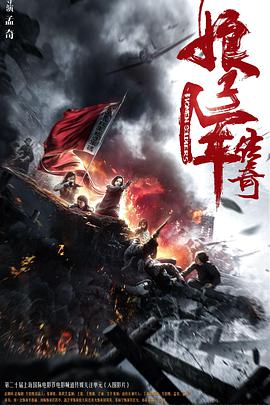
娘子军传奇
符红女在《红色娘子军》芭蕾舞剧中饰演一名小女兵, 由于资历尚浅, 演出时总在舞台的一角作陪衬,难以有展示自我的机会。一次意外发生,她从舞台上跌落至台下,昏迷了过去。醒来时, 发现情况变得很糟……符红女数次昏迷, 她像是在梦境中走进了红色娘子军李香瑜的生命里, 进行了一次神交。李香瑜及其战友传奇且不平凡的经历,融汇在符红女一个多小时的记忆里, 短暂且悠长……
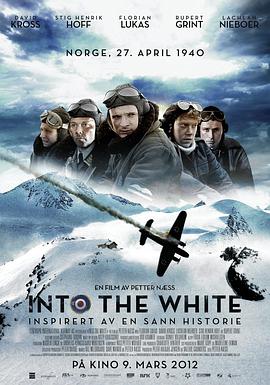
白色严冬
《战友》是一部反战题材影片。在严寒的挪威荒野的上空,英德双方的战机在一场激烈的空战中被彼此击落坠毁。在这与世隔绝的地方,他们必须竭尽全力在严寒的冬季生存下来。尽管战争使他们成了敌人,但是随着日子一天天过去,这种敌对状态很难维持。在对彼此的需要中,一种非常规的友谊开始萌芽。最后他们竟成了亲密的战友。无论如何,战争都是荒谬的。
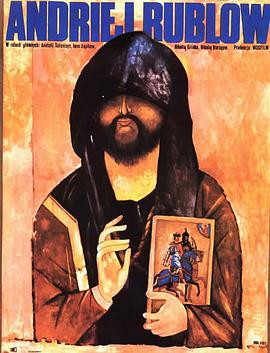
安德烈·卢布廖夫
15世纪初,俄罗斯动荡时期。著名圣像画家安德烈·卢布廖夫(安纳托里·索洛尼岑 Anatoli Solonitsyn饰)在大公的邀请下前往莫斯科为教堂作画,受到了贵族式的服务与对待。然而,卢布廖夫却身处在一个饱受鞑靼人铁蹄践踏和充满灾难残杀的悲惨时代。目睹了黎民百姓在大公暴政下的水深火热,卢布廖夫毅然离开教堂返回修道院。不久,卢布廖夫被迫再度回到莫斯科进行圣像创作。然而面对居民被无辜的残杀,教堂在战火中被无情的摧毁,卢布廖夫再次陷入艺术与现实巨大反差的质疑之中,拒绝继续作画。1423年,鞑靼人的军队终于被赶出俄罗斯的大地。在经历了炮火、鲜血的锤炼洗礼后的卢布廖夫,终于完成了传世名作《三位一体》的创作。
由苏联电影大师安德烈·塔科夫斯基执导的旷世史诗巨作《安德烈·卢布廖夫》,用塔式特有的诗化电影语言和如历史壁画一般的浓重画笔,呈现了15世纪俄罗斯著名圣像画家安德烈·卢布廖夫漂泊与抉择的一生。本片荣获1969年第22届戛纳电影节费比西奖。
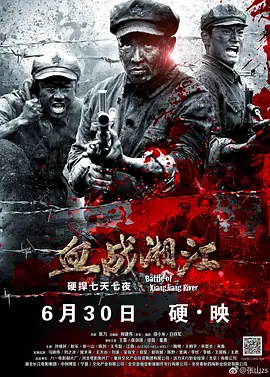
血战湘江
作为一部为长征胜利八十周年献礼的影片,本片以长征史上最惨烈的湘江之战为背景,成功塑造了以毛泽东为代表的中国工农红军领导人在长征中不屈不挠的光辉形象,深刻揭示了左倾错误路线给红军带来的惨痛损失,生动表现了红军34师官兵前赴后继、勇于牺牲,全力掩护中央红军渡过湘江,为苏维埃流尽最后一滴血的大无畏精神。
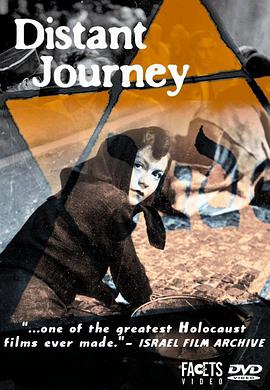
遥远的旅程
二战结束后拍摄,但拍成之后被禁10年,终于在近年得以重见天日。捷克影史上 最重要的反映大屠杀的反战电影之一,导演阿尔佛雷德·雷铎(Alfred Radok)生长于战 争年代,他深受战争之苦,家庭因战争而破散,他自己也蹲过集中营。在二战结束之后拍 摄了这部反映纳粹对犹太人大屠杀的巨作,故事分三条线索,主线是布拉格一所医院里一 对医生夫妇因为反犹太政策而祸从天降,被送往集中营的故事。剧情片与纪录片相结合, 给观众最真切最贴近的战争体验。
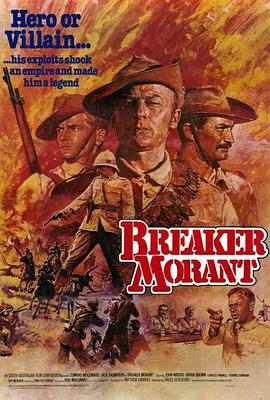
驯马手莫兰特
这是根据一个真实的故事改编,在布尔战争期间,上尉莫兰特和他的几位朋友一起在英国驻南非军队服役,在一次围剿布尔游击队的行动中,上尉亨特受伤被布尔人抓住并残忍的杀害,莫兰特于是奉上司的命令追击游击队并枪杀了所有的俘虏,由此引发了一连串的报复与方报复,双方的领导层在战争的最后阶段把莫兰特和他的朋友推出来在替罪羊,以此来推卸战争中的责任。
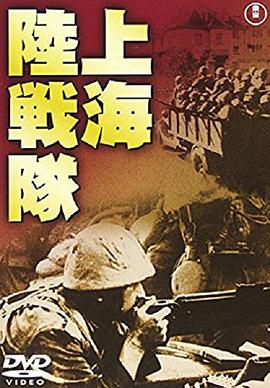
上海陆战队
熊谷久虎1939年作品,吹嘘日本军国主义者战绩,侵略中国上海的记实影片。于上海当地拍摄外景,血淋淋的再次描绘上海事变!昭和12年8月日本士官枪击事件的导火线,引发上海驻地的日本海军陆战队及中国军之中国军之战斗,之后接二连三壮烈的市街肉博战逐渐扩大,但士兵的体力已到极限,粮食跟弹药也快没了,登陆成功的好消息却还没有传到……
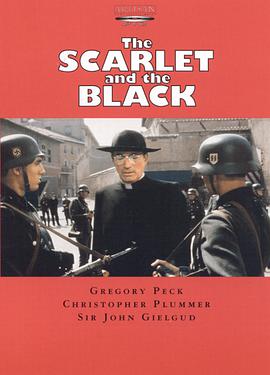
红袍与黑幕
德军进驻意大利后,一项非常重要的任务是追捕从其他国家监狱逃到梵蒂冈寻求庇护帮助的盟军战士。虽然由于担心危害到梵蒂冈的中立地位,教皇不能支持任何帮助这些前来寻求庇护的人,奥弗莱厄蒂神甫仍然不顾个人安危,在极其困难的情况下,坚持帮助任何一个前来请求帮助的人。随着奥弗莱厄蒂神甫的影响日益广泛,他成为罗马党卫军头目卡普勒急于除掉的心腹大患。面对卡普勒气急败坏的威胁,奥弗莱厄蒂大义凛然、从容不迫、机智地变换...
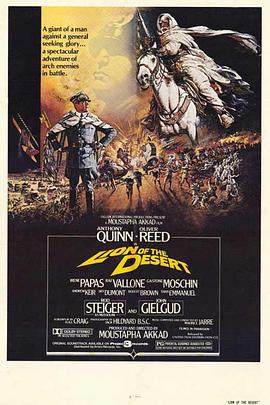
大地雄狮
内容描述在第二次世界大战之前,利比亚回教游击队领袖奥玛穆德在北非沙漠对抗墨索里尼的意大利占领军,终因寡不敌众而被意军杀害。但他的精神鼓舞着利比亚人们,他们坚持不懈地进行反抗,最终取得了独立。

出生证明
In 1961, Stanislaw Rozewicz created the novella film "Birth Certificate" in cooperation with his brother, Taduesz Rozewicz as screenwriter. Such brother tandems are rare in the history of film but aside from family ties, Stanislaw (born in 1924) and Taduesz (born in 1921) were mutually bound by their love for the cinema. They were born and grew up in Radomsk, a small town which had "its madmen and its saints" and most importanly, the "Kinema" cinema, as Stanislaw recalls: for him cinema is "heaven, the whole world, enchantment". Tadeusz says he considers cinema both a charming market stall and a mysterious temple. "All this savage land has always attracted and fascinated me," he says. "I am devoured by cinema and I devour cinema; I'm a cinema eater." But Taduesz Rozewicz, an eminent writer, admits this unique form of cooperation was a problem to him: "It is the presence of the other person not only in the process of writing, but at its very core, which is inserperable for me from absolute solitude." Some scenes the brothers wrote together; others were created by the writer himself, following discussions with the director. But from the perspective of time, it is "Birth Certificate", rather than "Echo" or "The Wicked Gate", that Taduesz describes as his most intimate film. This is understandable. The tradgey from September 1939 in Poland was for the Rozewicz brothers their personal "birth certificate". When working on the film, the director said "This time it is all about shaking off, getting rid of the psychological burden which the war was for all of us. ... Cooperation with my brother was in this case easier, as we share many war memories. We wanted to show to adult viewers a picture of war as seen by a child. ... In reality, it is the adults who created the real world of massacres. Children beheld the horrors coming back to life, exhumed from underneath the ground, overwhelming the earth."
The principle of composition of "Birth Certificate" is not obvious. When watching a novella film, we tend to think in terms of traditional theatre. We expect that a miniature story will finish with a sharp point; the three film novellas in Rozewicz's work lack this feature. We do not know what will be happen to the boy making his alone through the forest towards the end of "On the Road". We do not know whether in "Letter from the Camp", the help offered by the small heroes to a Soviet prisoner will rescue him from the unknown fate of his compatriots. The fate of the Jewish girl from "Drop of Blood" is also unclear. Will she keep her new impersonation as "Marysia Malinowska"? Or will the Nazis make her into a representative of the "Nordic race"? Those questions were asked by the director for a reason. He preceived war as chaos and perdition, and not as linear history that could be reflected in a plot. Although "Birth Certificate" is saturated with moral content, it does not aim to be a morality play. But with the immense pressure of reality, no varient of fate should be excluded. This approached can be compared wth Krzysztof Kieslowski's "Blind Chance" 25 years later, which pictured dramatic choices of a different era.
The film novella "On the Road" has a very sparing plot, but it drew special attention of the reviewers. The ominating overtone of the war films created by the Polish Film School at that time should be kept in mind. Mainly owing to Wajda, those films dealt with romantic heritage. They were permeated with pathos, bitterness, and irony. Rozewicz is an extraordinary artist. When narrating a story about a boy lost in a war zone, carrying some documents from the regiment office as if they were a treasure, the narrator in "On the Road" discovers rough prose where one should find poetry. And suddenly, the irrational touches this rather tame world. The boy, who until that moment resembled a Polish version of the Good Soldier Schweik, sets off, like Don Quixote, for his first and last battle. A critic described it as "an absurd gesture and someone else could surely use it to criticise the Polish style of dying. ... But the Rozewicz brothers do no accuse: they only compose an elegy for the picturesque peasant-soldier, probably the most important veteran of the Polish war of 1939-1945." "Birth Certificate" is not a lofty statement about national imponderabilia. The film reveals a plebeian perspective which Aleksander Jackieqicz once contrasted with those "lyrical lamentations" inherent in the Kordian tradition. However, a historical overview of Rozewicz's work shows that the distinctive style does not signify a fundamental difference in illustrating the Polish September. Just as the memorable scene from Wajda's "Lotna" was in fact an expression of desperation and distress, the same emotions permeate the final scene of "Birth Certificate". These are not ideological concepts, though once described as such and fervently debated, but rather psychological creations. In this specific case, observes Witold Zalewski, it is not about manifesting knightly pride, but about a gesture of a simple man who does not agree to be enslaved.
The novella "Drop of Blood" is, with Aleksander Ford's "Border Street", one of the first narrations of the fate of the Polish Jews during the Nazi occupation. The story about a girl literally looking for her place on earth has a dramatic dimension. Especially in the age of today's journalistic disputes, often manipulative, lacking in empathy and imbued with bad will, Rozewicz's story from the past shocks with its authenticity. The small herione of the story is the only one who survives a German raid on her family home. Physical survial does not, however, mean a return to normality. Her frightened departure from the rubbish dump that was her hideout lead her to a ruined apartment. Her walk around it is painful because still fresh signs of life are mixed with evidence of annihilation. Help is needed, but Mirka does not know anyone in the outside world. Her subsequent attempts express the state of the fugitive's spirits - from hope and faith, moving to doubt, a sense of oppression, and thickening fear, and finally to despair.
At the same time, the Jewish girl's search for refuge resembles the state of Polish society. The appearance of Mirka results in confusion, and later, trouble. This was already signalled by Rozewicz in an exceptional scene from "Letter from the Camp" in which the boy's neighbour, seeing a fugitive Russian soldier, retreats immediately, admitting that "Now, people worry only about themselves." Such embarassing excuses mask fear. During the occupation, no one feels safe. Neither social status not the aegis of a charity organisation protects against repression. We see the potential guardians of Mirka passing her back and forth among themselves. These are friendly hands but they cannot offer strong support. The story takes place on that thin line between solidarity and heroism. Solidarity arises spontaneously, but only some are capable of heroism. Help for the girl does not always result from compassion; sometimes it is based on past relations and personal ties (a neighbour of the doctor takes in the fugitive for a few days because of past friendship). Rozewicz portrays all of this in a subtle way; even the smallest gesture has significance. Take, for example, the conversation with a stranger on the train: short, as if jotted down on the margin, but so full of tension. And earlier, a peculiar examination of Polishness: the "Holy Father" prayer forced on Mirka by the village boys to check that she is not a Jew. Would not rising to the challenge mean a death sentance?
Viewed after many years, "Birth Certificate" discloses yet another quality that is not present in the works of the Polish School, but is prominent in later B-class war films. This is the picture of everyday life during the war and occupation outlined in the three novellas. It harmonises with the logic of speaking about "life after life". Small heroes of Rozewicz suddenly enter the reality of war, with no experience or scale with which to compare it. For them, the present is a natural extension of and at the same time a complete negation of the past. Consider the sleey small-town marketplace, through which armoured columns will shortly pass. Or meet the German motorcyclists, who look like aliens from outer space - a picture taken from an autopsy because this is how Stanislaw and Taduesz perceived the first Germans they ever met. Note the blurred silhouettes of people against a white wall who are being shot - at first they are shocking, but soon they will probably become a part of the grim landscape. In the city centre stands a prisoner camp on a sodden bog ("People perish likes flies; the bodies are transported during the night"); in the street the childern are running after a coal wagon to collect some precious pieces of fuel. There's a bustle around some food (a boy reproaches his younger brother's actions by singing: "The warrant officer's son is begging in front of the church? I'm going to tell mother!"); and the kitchen, which one evening becomes the proscenium of a real drama. And there are the symbols: a bar of chocolate forced upon a boy by a Wehrmacht soldier ("On the Road"); a pair of shoes belonging to Zbyszek's father which the boy spontaneously gives to a Russian fugitive; a priceless slice of bread, ground under the heel of a policeman in the guter ("Letters from the Camp"). As the director put it: "In every film, I communicate my own vision of the world and of the people. Only then the style follows, the defined way of experiencing things." In Birth Certificate, he adds, his approach was driven by the subject: "I attempted to create not only the texture of the document but also to add some poetic element. I know it is risky but as for the merger of documentation and poety, often hidden very deep, if only it manages to make its way onto the screen, it results in what can referred to as 'art'."
After 1945, there were numerous films created in Europe that dealt with war and children, including "Somewhere in Europe" ("Valahol Europaban", 1947 by Geza Radvanyi), "Shoeshine" ("Sciescia", 1946 by Vittorio de Sica), and "Childhood of Ivan" ("Iwanowo dietstwo" by Andriej Tarkowski). Yet there were fewer than one would expect. Pursuing a subject so imbued with sentimentalism requires stylistic disipline and a special ability to manage child actors. The author of "Birth Certificate" mastered both - and it was not by chance. Stanislaw Rozewicz was always the beneficent spirit of the film milieu; he could unite people around a common goal. He emanated peace and sensitivity, which flowed to his co-workers and pupils. A film, being a group work, necessitates some form of empathy - tuning in with others.
In a biographical documentary about Stanislaw Rozewicz entitled "Walking, Meeting" (1999 by Antoni Krauze), there is a beautiful scene when the director, after a few decades, meets Beata Barszczewska, who plays Mireczka in the novella "Drops of Blood". The woman falls into the arms of the elderly man. They are both moved. He wonders how many years have passed. She answers: "A few years. Not too many." And Rozewicz, with his characteristic smile says: "It is true. We spent this entire time together."
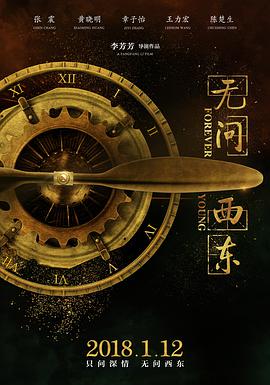
无问西东
如果提前了解了你所要面对的人生,你是否还会有勇气前来?吴岭澜、沈光耀、王敏佳、陈鹏、张果果,几个年轻人满怀诸多渴望,在四个非同凡响的时空中一路前行。
吴岭澜(陈楚生 饰),出发时意气风发,却很快在途中迷失了方向。沈光耀(王力宏 饰),自愿参与了最残酷的战争,他一直在努力去做那些令他害怕,但重要的事。王敏佳(章子怡 饰)最初的错误,只是为了虚荣撒了一个小谎;最初的烦恼,只是在两个优秀的男人中选择一个。但命运,却把她拖入被众人唾骂的深渊。陈鹏(黄晓明 饰)把爱情摆在了理想前面,但爱情却没有把他摆在前面。他说,“我有人要照顾”,纵然这意味着与所有人作对,意味着要和她一起被放逐千里。张果果(张震 饰),身处尔虞我诈的职场,“赢”是他的习惯。为了赢,他总是见招拆招,先发制人。而有一天,他却面临了一个比“赢”更重要的选择。这几个年轻人,在最好的年纪迎来了最残酷的考验,并成就了永不褪色的青春传奇。
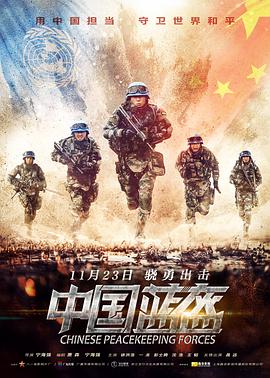
中国蓝盔
我国首部维和军事题材电影《中国蓝盔》讲述了当下中国维和部队官兵在非洲坚决执行习主席指示的“构建人类命运共同体”的大国方针、严格履行联合国赋予的使命,派出了以“兵王”杜峰为首的作战小组冒着生命危险,从恐怖分子手中救出联合国调查组,从而阻止了一场一触即发的战争,维护了难民营的生活秩序、保障了难民们的生活权益。但是年轻的战士也在这次行动中为了维护非洲的和平而献出了宝贵的生命……
本站内容均从互联网收集而来,仅供交流学习使用,版权归原创者所有如有侵犯了您的权益,尽请通知我们,本站将及时删除侵权内容。

